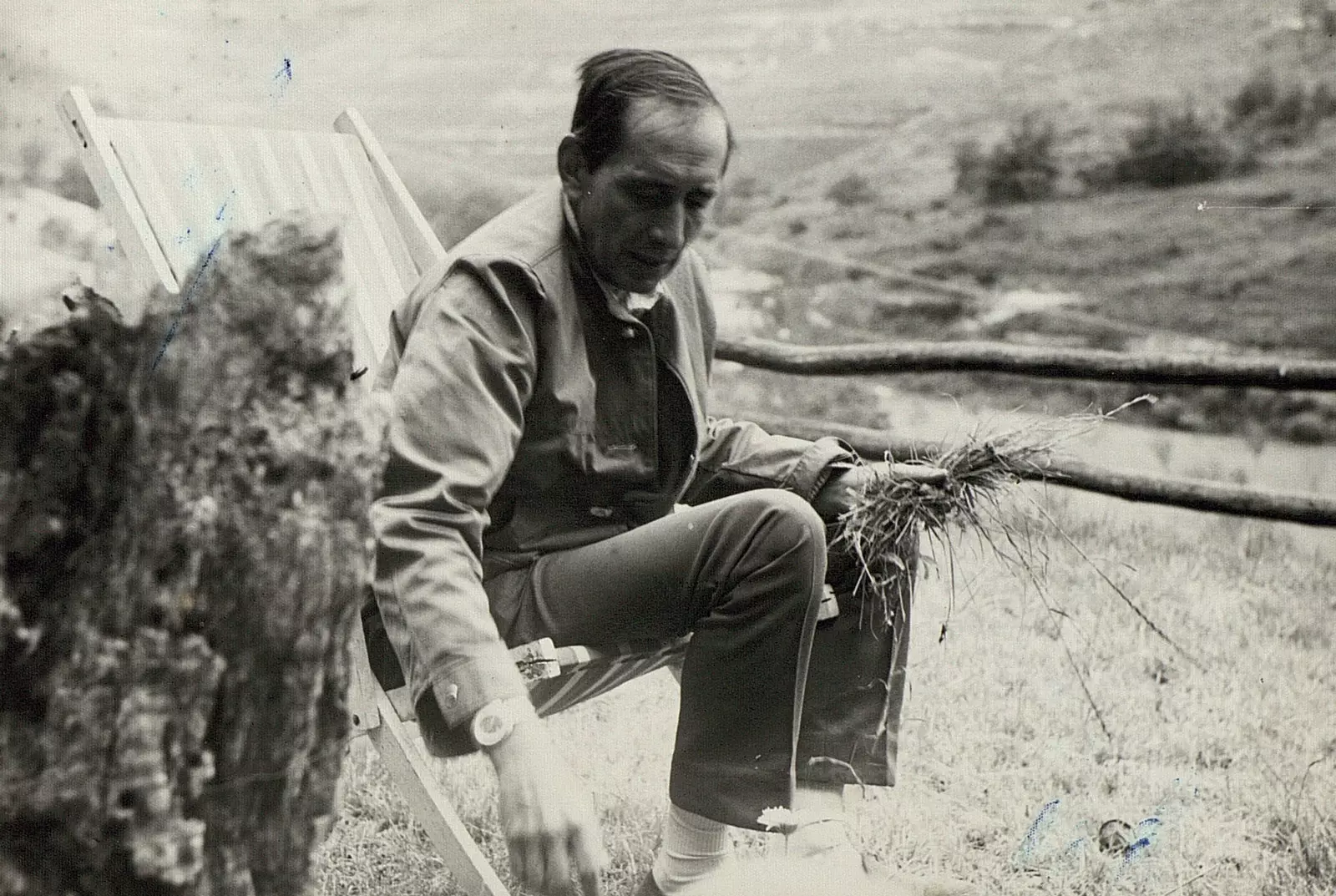
Miguel Delibes Setién in Sedano, Burgos
“Dear friend: for five years, after three times I underwent cancer surgery, I have preserved my life but in a phase of semi-uselessness and impotence: I cannot travel, I do not write, I do not hunt... In the end, I am no longer me.".
The recipient of this letter signed in January 2003 by Miguel Delibes (1920-2010) She was a student at the Complutense University of Madrid who was requesting a brief interview with the author of El camino. Her request was affectionately rejected by the man from Valladolid who, in the last stage of his life, he assured, he was not who he was again, nor to concentrate the same as before and, more than not being able to pick up the pen, he ached from "not being able to use the shotgun against the red partridges".
Expressions like this could be misunderstood in this post millennial era. The work of the Castilian-Leonese has lasted, but, ten years after his death and one hundred after his birth, his human and literary figure deserves a new look far from superficial evaluations.
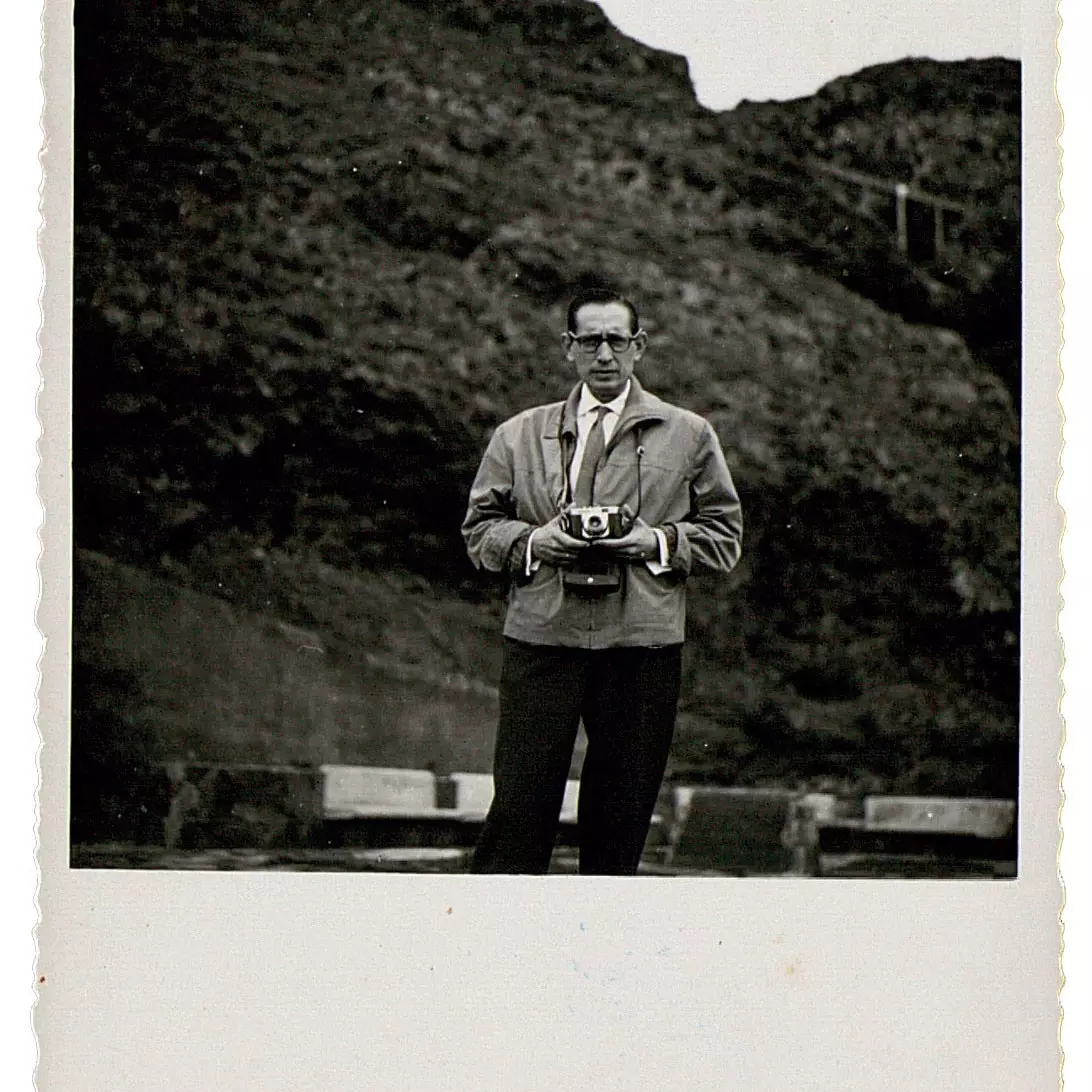
Miguel Delibes Setién during his trip to the island of Tenerife
One of her daughters, Elisa, recently proposed that initiatives already "very popular" be avoided to commemorate these two anniversaries and suggested, for example, a cycle with her father's favorite films. It seems that François Truffaut and Federico Fellini were among his directors of reference. This would be another way of approaching the famous narrator, who he highlighted from his first novel, The shadow of the cypress is long (1947), with which he won the Nadal award.
For extolling life in the countryside he was once accused of reactionary Cervantes prize winner. Today it might be thought, however, that his ideals bordered on those of an anti-system, since his prose rose against that supposed progress that crushes man and his values.
Delibes lamented that we had killed peasant culture so as not to replace it with anything worthwhile and he lamented the loss of knowledge of young people regarding the use of plants and respect for animals.
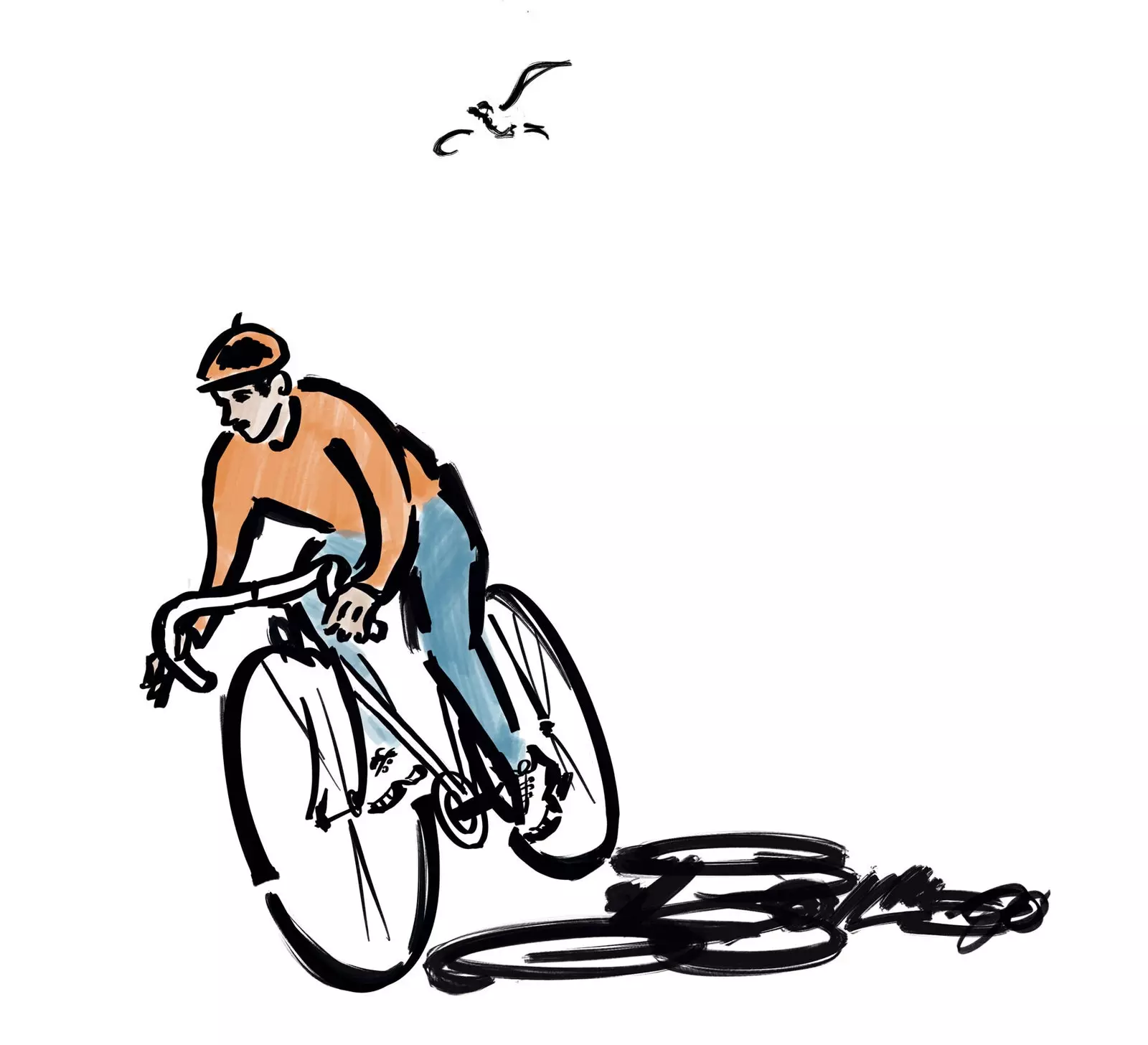
"Things could have happened in any other way and yet they happened that way", El Camino, 1950
Those who may be scandalized by his fondness for hunting –of small animals, since he already confessed to his biographer, Javier Goñi, that he was not capable of shooting a wild boar or a deer–, probably also have difficulties to understand that Delibes outside a fervent ecologist, defender of the harmony between man and nature, who already warned us about climate change before we all talked about it.
"Earth is seriously injured," he said in 2007. “I think it is still in our hands to save her, but are we going to agree to do it? We are so well installed in abundance that it is not easy to convince the neighbor to make serious sacrifices to prevent global warming. The moment is crucial for the man to give us the measure of his sensitivity”.
His towards that ** empty Spain ** so talked about today made him a popular and widely read author, whose titles have amply withstood the passage of time.
He was not a man of slogans or parties –To get an idea of some of his political opinions, it is worth reviewing The disputed vote of Mr. Cayo , which also had an interesting adaptation to the cinema–, although his quarrels with Fraga are well known.
His attacks on freedom of expression caused him to resign from his post director of El Norte de Castilla, where great journalists such as Francisco Umbral, César Alonso de los Ríos and Manu Leguineche had grown up under his influence.
The Castilian could direct El País and did not want to, nor did he regret it. Man of intuitions more than ideas, he preferred to devote himself to a work with a marked ethical will, concept frequently rejected by the court of modernity.
The scholar Ramón Buckley described him as an outdated novelist –compared to “behaviorists” like Sánchez Ferlosio–, since he dealt with man as an individual, as a unique, unrepeatable and singular being.
Deep Spain acquired from his perspective certain doses of melancholy (they say he was pessimistic by nature), but also with a lot of tenderness and love for the countrymen and the colors of the Castilian postcards, rough only in appearance, inviting the reader to go through them with new eyes.
he also had open religious convictions, which may have been erroneously linked to a certain conservatism, and a subtle sense of humor that persists in the construction of his characters.
Those that served him to portray childhood are particularly timeless: the Quico who "reviews himself" in The Dethroned Prince, the Little Owl who doesn't want to go to the city "to progress" in The Road.
“A harmony, customs, a rhythm, a unique and peculiar way of living” It was what he immortalized in the latter, beyond the landscapes in the process of being abandoned, or in The Holy Innocents, which also had a famous film adaptation (which, they say, he found a bit terrifying).
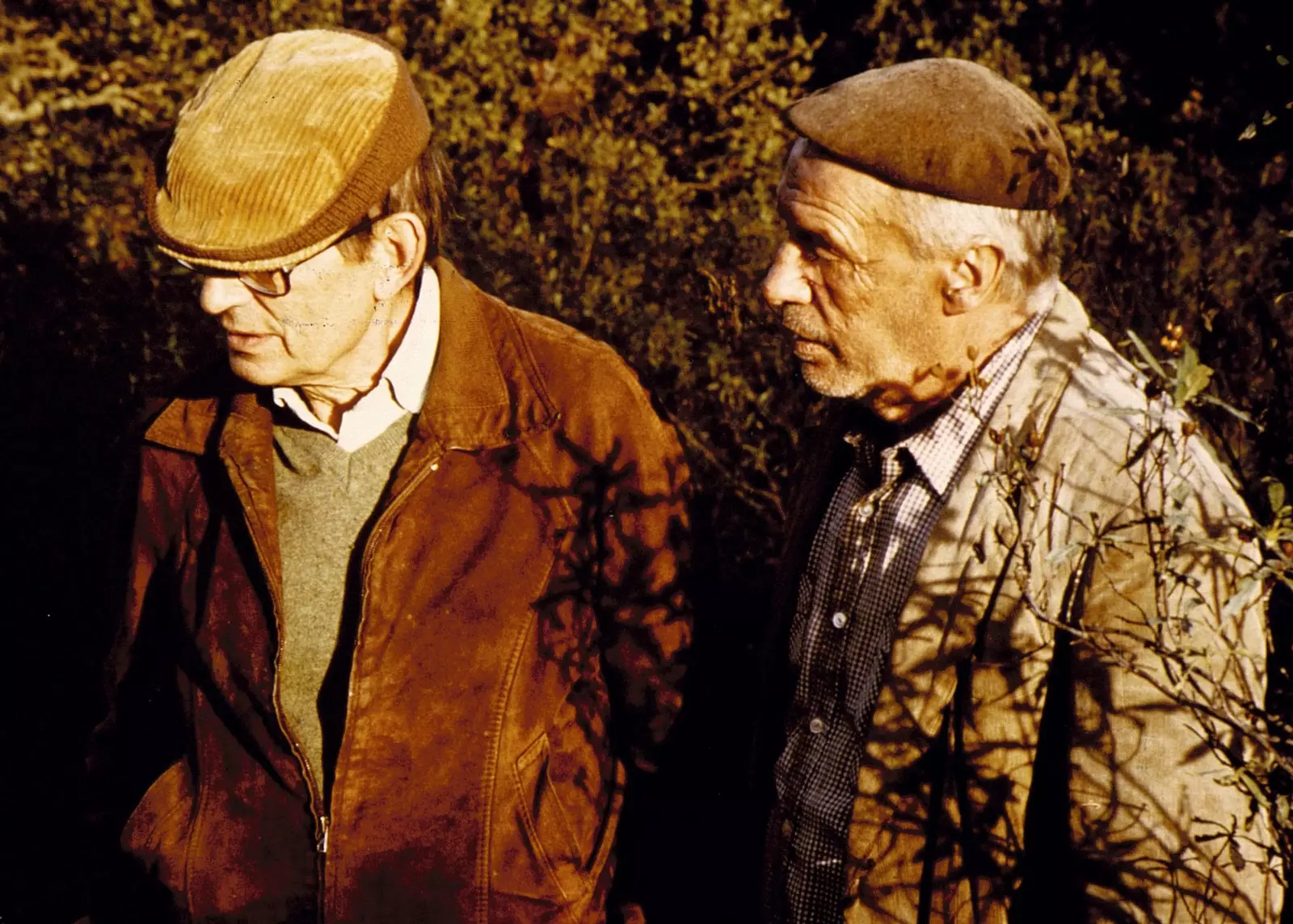
Miguel Delibes Setién and Francisco Rabal during the filming of 'The Holy Innocents', 1984
His impeccable lexicon was very rich as well as simple and accessible, and his spirit, being already in his eighties, remained young enough not to refuse an evolution. the one he was member of the Royal Spanish Academy from 1975 until his death, occupying the “e” chair, he did not believe that the language was suffering from a progressive impoverishment. “Change, just change”, he commented in one of his last television interviews, while he joked, yes, about the abundant use of neologisms.
** “To return to Miguel Delibes is to never stop learning to look”, José Sacristán recently said,** who at the age of 82 wanted to bid farewell to the stage by starring in the theatrical adaptation of Lady in red on gray background , Delibes's literary homage to his wife, Ángeles de Castro.
The dramatized reading of El Hereje directed by José Luis Cuerda at the Calderón has been, unfortunately, frustrated due to the death of the filmmaker, but throughout 2020 we will have the opportunity, through other tributes (theatricals, conferences, reissues, concerts... In addition to a major exhibition at the National Library of Spain), to rediscover his gaze, also a traveler: he touches on rescuing Europe, stop and inn (1963), Through those worlds (1966), USA and I (1966) and Prague Spring (1968), among others.
His chronicles about his first trip to America, where he went in 1955 invited by the Circle of Journalists of Santiago de Chile, they were published in El Norte de Castilla under the title On the other side of the puddle and also as an essay in A novelist discovers America (Chile in the eye of another), in 1956 his novel Diary of an Emigrant (1958), sequel to Diary of a Hunter, was also born from those experiences.
“I would like them to think that I was not a bad person, that would be enough for me,” he said of his desire to go down in history. “As for literature, I got where I could but I went quite far. Although I am not even less sure that I have achieved it”.
Traveling their same paths once again will be a whole trip.
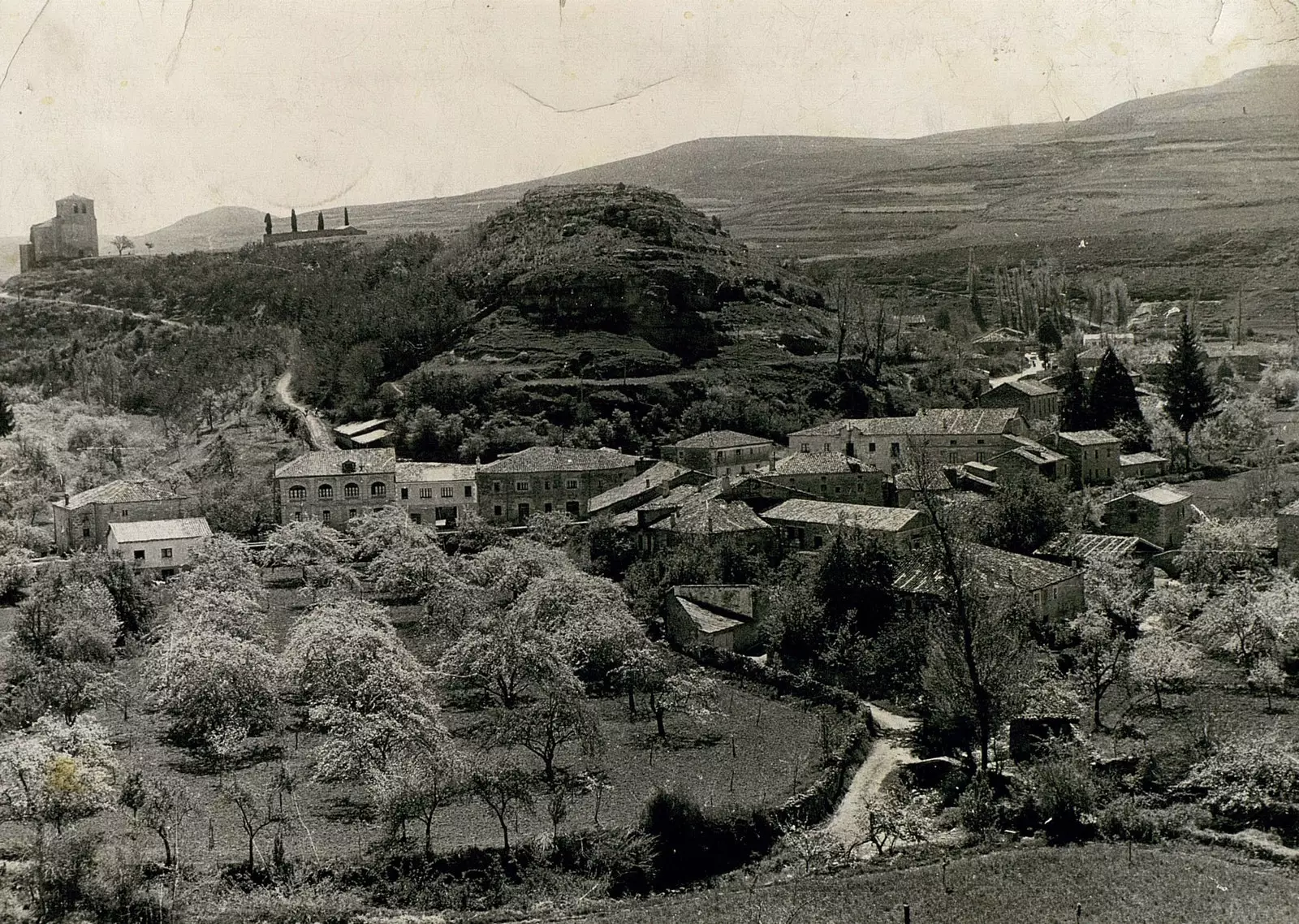
Panoramic view of Sedano
THE LORD CAYO WAS RIGHT FERNANDO ZAMÁCOLA (Director of the Miguel Delibes Foundation)
Nothing is casual in Delibes, like his approach to ecology and the inexorable abandonment of the rural world
They are finally on the table. It is fashionable to talk about the rural environment and conservation. Today no one doubts that they are two closely related causes that must be defended. Media, scientists, activists, educators, consumers, even politicians...
A large majority of society seems to have understood the relevance of defending the rural environment and the environment, although we still have a long way to go. Let's hope we arrive on time.
However, that today these issues are "in fashion", that they form part of the political agenda and are debated in the media, It is not a coincidence, nor the result of chance, but a somewhat late consequence, it must be said, of the push of some visionaries.
People who, like Miguel Delibes, dared to focus on landscapes, yes, but also on knowledge, trades, uses and customs that were being lost, until then transmitted from parents to children, without writings in between, recognizing their importance, dignifying their owners, giving them a voice. Men, landscapes and passions. Pure Delibes.
In the end, Mr. Cayo turned out to be right about his reluctance to leave his town. Daniel el Ochuelo also had it anticipating his nostalgia for an authentic, wild and fun childhood, in which nature was the protagonist. Azarias was not wrong in giving love to animals and emphasizing his tenderness with the weakest of his family.
Nothing is casual in Delibes. It cannot be said that he was an activist, but it is true that he found subtle ways, true, and also deeper, of talk about issues that today are some of our main challenges: ecology and the inexorable abandonment of the rural environment.
Few days ago, Angels Case said of Miguel Delibes that He "was not only a master of how to use words, he was also a master of what to use them for."
Thanks, among others, to him, these topics are today on the discussion table.
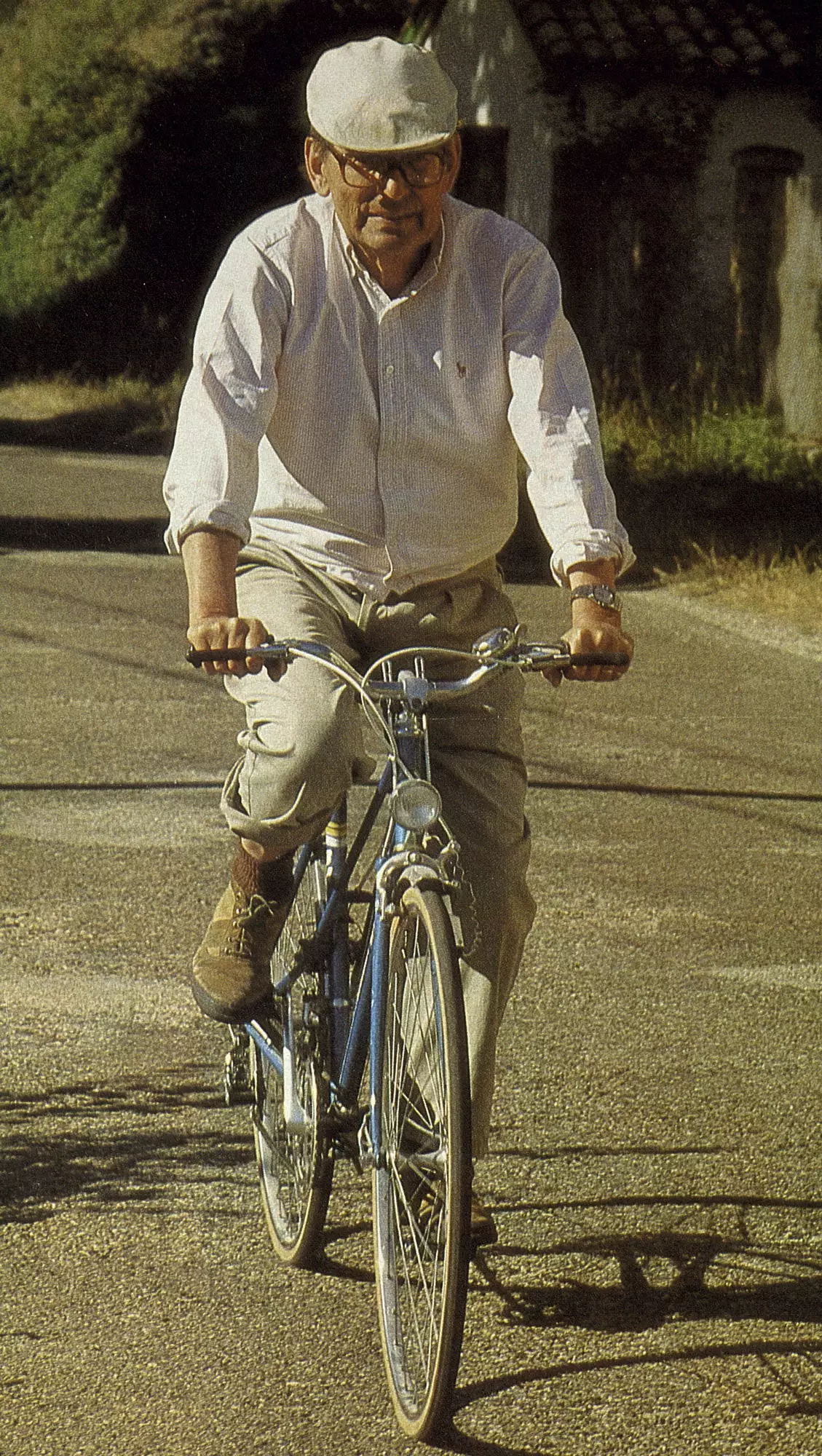
Miguel Delibes Setién riding a bicycle in Sedano, Burgos
This report was published in number 138 of the Condé Nast Traveler Magazine (April 2020). Subscribe to the printed edition (11 printed issues and a digital version for €24.75, by calling 902 53 55 57 or from our website). The April issue of Condé Nast Traveler is available for all of us to enjoy from any device. Download it and enjoy.
